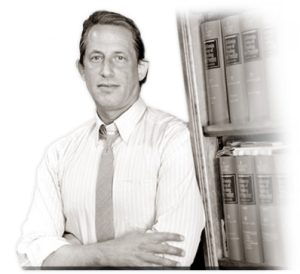Knockoffs Now Becoming Familiar in Perfume Industry Says Los Angeles Fashion Lawyer

SHARE
FULL STORY
SHARE
Los Angeles, CA (Law Firm Newswire) February 11, 2011 – The fashion industry has long been plagued with look-alike knockoffs. Now, they face smell-alike perfumes.
Less than ethical individuals in business who wish to make a quick buck by selling perfume smell-alikes will find an almost instant market. Consumers do not much care about whether the scent of a perfume is dead on and a classy brand name if they can get a reasonable facsimile for a fraction of the cost. Hence, knockoffs are very real threat to the perfume industry because their pockets are being picked by cheap smell-alikes.“How is it possible to make a perfume smell-alike when perfume has such a singularly subjective appeal to people based on the notes in the original? Perfumes have three notes: the top, middle and bottom note. The top gives the user the first impression, the middle note comes to life when the top note begins to wear off and the bottom note, which emerges last, is the base scent that carries the whole perfume,” said David Alden Erikson, a Los Angeles business litigation attorney. Mr. Erikson works in Los Angeles fashion law, Internet law, business litigation, trademark and copyright law.
The notes will last for different periods of time on everyone, as each person’s skin will handle the scents differently. What that means is the very uniqueness of perfume is based on unpredictable, in tangible elements and are virtually impossible to trademark. While the making of the perfume is fairly straightforward, the various combinations to make the scent the right signature is tricky.
“The thing is, once the perfume has been made, it is easy to make a copy. Furthermore, the smell-alikes don’t even have to use the same ingredients to get a similar scent. The stink in the perfume industry is that the copycats don’t invest millions in research and development or branding. All they need to do is have the original chemically analyzed, toss some similar ingredients together and bingo, they are in business,” Erikson said.
The bottom line is that perfume makers are losing money to unethical upstarts who are reverse engineering their original products and cutting into their profits. It is not just the scents being copied; it is the colors, packaging and bottle shapes being borrowed and subtly changed to skirt the law.
“Speaking of the law, unfortunately, it’s not illegal to make or sell smell-alikes. This relates to the fact that making perfume is done with technical knowledge and mixing chemicals properly and this is not considered to be a tangible form of expression, hence there is no copyright protection,” Erikson said. What do countries do to get on top of this illegal trade? They usually deal with it though trademark infringement or unfair advertising.
“When referring to trademark infringement, we are referring to the packaging, as fragrance can’t be trademarked,” Erikson said. “Instead, the focus is on how the perfume is packaged, as in trade dress and the elements that make it distinctive, such as bottle shape, color, applicator, etc. These are trademarks.”
The law in this area is constantly changing and mutating to try and deal with issues like this, but still, perfume companies are having trouble protecting their market. It will be interesting to watch many of the more recent cases filed in this area, to get an idea of what the courts will do to get a handle on this issue.
To learn more about David Alden Erikson, Attorney at Law, visit http://www.daviderikson.com.
David Erikson Attorney At Law
200 North Larchmont Boulevard
Los Angeles, CA 90004-3707
Call: (323) 465-3100
[mappress mapid=”37″]
[iframe http://www.daviderikson.com 100% 450px]

